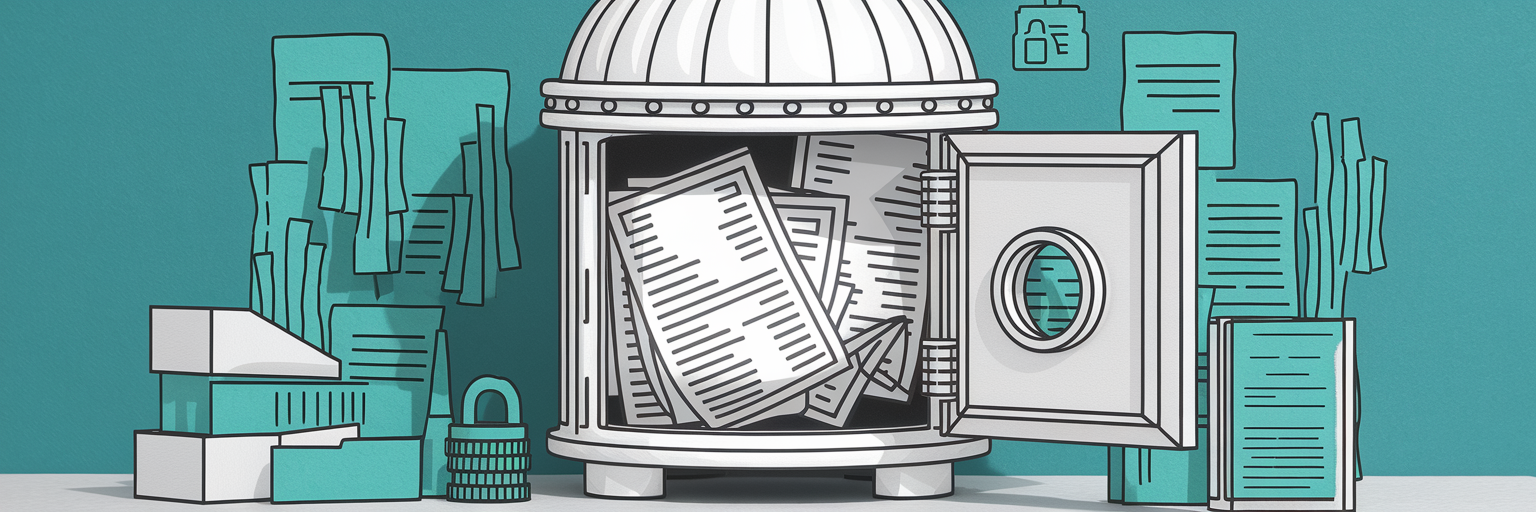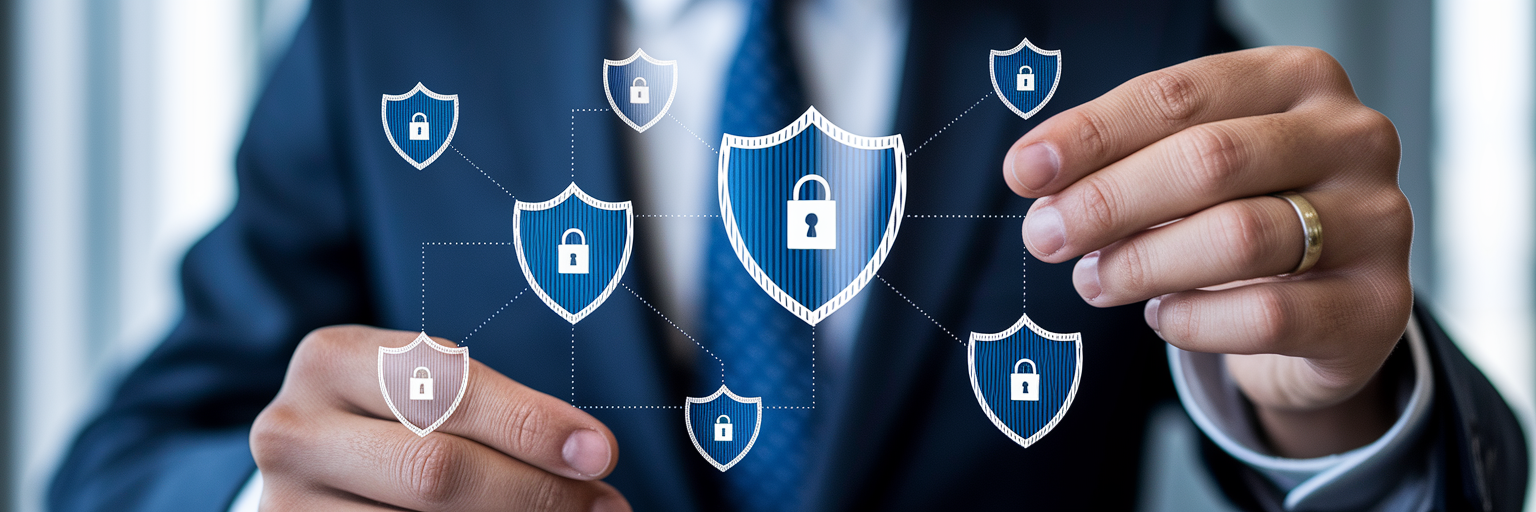Why Privacy First Invoicing is Essential for Modern Businesses

The global shift to digital platforms means businesses now process an unprecedented volume of sensitive financial data with every transaction. Consider that the average cost of a data breach reached $4.45 million in 2023, according to IBM’s annual report. This stark figure underscores the critical need for robust security in all financial operations, particularly when it comes to invoicing, making the adoption of privacy-first invoicing strategies more pertinent than ever.
The Evolving Landscape of Business Transactions and Data Sensitivity
The transition to digital financial processes is nearly universal, fundamentally altering how businesses manage monetary exchanges and related information. Invoicing, once a paper-based task, has largely moved online, significantly increasing the volume of sensitive data being handled electronically. Each digital invoice, every online payment, carries a payload of confidential details, from client identifiers to transaction specifics.
This digital convenience, however, comes with heightened exposure to data breaches. The frequency and sophistication of cyberattacks continue to grow, with financial data being a prime target. Traditional invoicing methods often present clear vulnerabilities. Think about the common practice of emailing unencrypted PDF invoices. Are these communications secure during transit? Where are these digital files ultimately stored, and who possesses access? Insecure local storage of financial records or the risks associated with manual data entry further compound these exposures, potentially laying bare both client and business financial details.
It’s not solely malicious actors that businesses must consider. A growing web of data protection regulations, such as GDPR in Europe and CCPA in California, imposes stricter data handling requirements that directly impact invoicing processes. These regulations mandate careful management of personal and financial information, with significant penalties for non-compliance. In this current digital and regulatory climate, a proactive stance on financial data security, especially for data protection invoicing, is no longer an optional upgrade but a fundamental component of modern invoicing essentials.
Defining Privacy-First Invoicing
Given these escalating risks and regulatory pressures, the question then becomes: what does a truly secure approach to invoicing look like? This brings us to the concept of privacy-first invoicing, a methodology that embeds data protection into the very fabric of the invoicing lifecycle, rather than treating security as an add-on. It differentiates itself significantly from standard or less secure practices by prioritizing the safeguarding of sensitive information from the outset.
Core Tenets of Privacy-First Invoicing
Several fundamental principles underpin this approach, ensuring a comprehensive shield for financial data:
- Data Minimization: It begins with a critical assessment: what information is absolutely essential to issue an invoice and process payment? Only that necessary data should be collected.
- Purpose Limitation: The data gathered is used strictly for invoicing and any other explicitly agreed-upon purposes. It is not repurposed for unrelated marketing or analytical activities without clear consent.
- Robust Encryption: This is non-negotiable. Data must be encrypted both in transit, as it travels across networks, and at rest, when stored in databases or on servers.
- User Consent and Control: Clients should have clarity on how their data is being used and, where appropriate, control over their information. Transparency builds trust.
- Secure Transmission Channels: Utilizing protocols like HTTPS and other secure methods ensures that data is protected as it moves between systems.
- Protected Storage Environments: Implementing secure, resilient infrastructure for data storage, with stringent access controls, is vital.
Enabling Technologies for Enhanced Data Security
Achieving true privacy-first status relies on specific technologies designed for data protection:
- End-to-End Encryption (E2EE): Imagine sending a critical document in a special, sealed container that only the intended recipient can unlock. E2EE works similarly, encrypting data at the sender’s end so that only the authorized recipient can decrypt it.
- Zero-Knowledge Architecture: This is a powerful design principle. It ensures that the service provider, such as the invoicing platform itself, cannot access users’ unencrypted sensitive data. Platforms like Zerocrat are built upon such architecture, guaranteeing that your financial information remains exclusively yours.
- Multi-Factor Authentication (MFA): Adding an extra layer of verification beyond just a password significantly strengthens defenses against unauthorized access to invoicing systems.
- Secure Access Controls and Audit Logs: Limiting data access based on roles and responsibilities, and maintaining detailed records of who accessed what data and when, are crucial for accountability and security monitoring.
Ultimately, privacy-first invoicing is a comprehensive design philosophy. It’s about proactively weaving privacy measures throughout the entire invoicing process to protect both confidential client billing details and the business’s own sensitive financial data.
Tangible Benefits of Adopting Privacy-First Invoicing
Moving towards privacy-first invoicing is not merely a defensive strategy against potential threats; it is a proactive approach that yields substantial and diverse advantages for a business. These benefits extend far beyond simple compliance, touching upon client relationships, financial stability, and market standing.
- Enhanced Client Trust and Loyalty: When clients understand and see verifiable proof that their sensitive financial data is handled with the utmost care through secure business invoicing, it fosters a deeper sense of confidence. This trust is a cornerstone of strong, long-lasting client relationships and can significantly improve retention rates.
- Reduced Risk of Data Breaches and Associated Costs: Robust security measures inherently minimize the likelihood of a data breach. The financial impact of such incidents can be crippling, encompassing direct costs like forensic investigations, legal fees, regulatory fines, and system repairs. As highlighted in reports like IBM’s annual Cost of a Data Breach Report, breaches involving customer personally identifiable information are consistently among the most expensive, with long-tail costs that can affect client retention for years.
- Improved Compliance with Data Protection Regulations: Navigating the complex landscape of data protection laws such as GDPR, CCPA, and others relevant to a business’s operational regions can be challenging. Privacy-first systems are often designed from the ground up to help businesses meet these stringent requirements, thereby reducing the risk of non-compliance and associated penalties.
- Strengthened Business Reputation and Competitive Advantage: In an era where consumers and businesses are increasingly conscious of data privacy, a strong, demonstrable commitment to protecting information can be a significant market differentiator. It signals responsibility and reliability, attracting clients who prioritize security.
- Streamlined and Secure Financial Operations: Advanced privacy-first systems frequently incorporate features like encrypted receipt uploads or secure payment gateway integrations. These not only bolster security but can also enhance operational efficiency, allowing for smoother financial workflows without compromising data integrity.
These advantages collectively demonstrate that investing in privacy-first invoicing is an investment in the overall health and resilience of the business. It positively impacts client relations, financial stability, regulatory standing, and competitive positioning in the marketplace.
| Impact Category | Description | Example Consequences |
|---|---|---|
| Direct Financial Costs | Immediate expenses incurred post-breach. | Forensic investigation, legal fees, system repair, regulatory fines (e.g., up to 4% of global annual turnover under GDPR). |
| Indirect Financial Costs | Longer-term financial repercussions. | Customer notification costs, credit monitoring for affected clients, increased insurance premiums, operational downtime. |
| Reputational Damage | Harm to brand image and stakeholder trust. | Loss of current and potential clients, negative media coverage, diminished investor confidence. |
| Loss of Competitive Advantage | Weakened market position due to perceived unreliability. | Clients switching to competitors with stronger security, difficulty attracting new business. |
This table outlines the multifaceted repercussions businesses can face if sensitive invoicing data is compromised. The examples provided are illustrative of common outcomes reported in cybersecurity studies and regulatory actions, underscoring the economic and strategic value of robust data protection invoicing.
Implementing Privacy-First Invoicing in Your Business
Understanding the importance and core components of privacy-first invoicing is the first step. The next involves translating that understanding into concrete action. How can your business effectively implement these principles? It requires a methodical approach, blending technology, process refinement, and human diligence.
- Assess Current Invoicing Vulnerabilities: Before you can fortify your defenses, you must identify existing weaknesses. Conduct a thorough audit of your current invoicing processes. Where is data collected? How is it transmitted—are unsecure emails still in use? How and where is it stored? Who has access? Pinpointing these potential points of compromise is essential.
- Choose the Right Tools and Platforms: Not all invoicing solutions offer the same level of protection. When evaluating options, prioritize features like strong encryption standards (e.g., AES-256), and critically, a zero-knowledge architecture. This design ensures the platform provider cannot access your unencrypted data, offering a superior layer of privacy. Look for granular access controls, comprehensive audit trails, and clear data processing agreements. For businesses seeking robust and secure accounting functionalities, exploring platforms such as Zerocrat can provide a benchmark for features that truly prioritize data protection.
- Train Employees on Data Privacy Best Practices: Your team is a crucial part of your security posture. Even the most advanced technology can be undermined by human error. Implement comprehensive training for all staff involved in invoicing, covering secure data handling, phishing awareness, strong password hygiene, and clear incident response protocols for secure business invoicing.
- Communicate Your Privacy Commitment to Clients: Transparency builds trust. Don’t keep your data protection efforts a secret. Clearly articulate your privacy measures to your clients through accessible privacy policies, statements on invoices, or dedicated sections on your website. This reassures them that their information is in safe hands.
- Regularly Review and Update Privacy Measures: Data privacy is not a set-it-and-forget-it task. The threat landscape is constantly changing, as are regulations. Schedule periodic reviews of your invoicing systems, privacy protocols, and employee training to ensure they remain effective and adapt to new risks.
A successful transition to privacy-first invoicing is achieved through a combination of adopting appropriate technology, refining internal processes, committing to continuous employee education, and maintaining unwavering vigilance.
The Future Imperative of Secure Business Transactions
The dialogue surrounding data privacy in financial dealings has decisively shifted from a specialized IT concern to a fundamental business strategy. Looking ahead, the principles of privacy-first invoicing are not just best practices but are rapidly becoming non-negotiable expectations for any business handling sensitive information. This commitment is central to modern invoicing essentials if businesses aim to remain competitive and trustworthy.
We are also seeing continuous advancements in Privacy-Enhancing Technologies (PETs). Concepts like homomorphic encryption, which could allow computations on encrypted data without ever decrypting it, or federated learning, offer glimpses into an even more secure future for financial data, though their widespread, practical application in everyday invoicing is still developing. What is clear, however, is the growing demand for verifiable security claims. It’s no longer sufficient to simply state that data is secure; businesses must be able to demonstrate it. Practices such as independent third-party security audits and transparent data processing policies, which Zerocrat actively champions, are becoming crucial for substantiating privacy commitments and building enduring stakeholder trust.
In the contemporary digital economy, neglecting robust data protection invoicing practices is not merely an oversight; it’s a significant strategic risk. Prioritizing privacy is integral not just for compliance, but for ensuring business sustainability, upholding ethical operations, and maintaining the invaluable trust of clients and partners. These measures are a core component of resilient and future-ready business operations.


